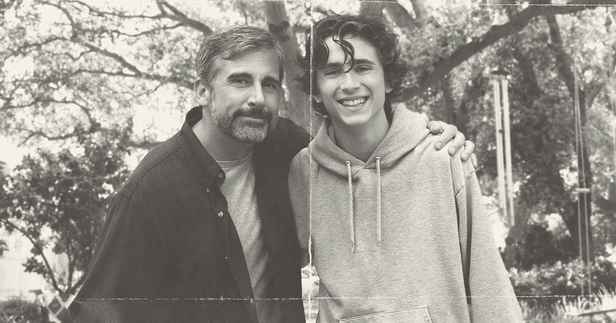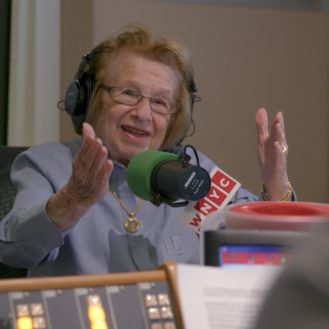By: Jessica Goddard
From director Felix Van Groeningen (The Broken Circle Breakdown), Beautiful Boy is an affecting, thought-provoking account of one family’s experience with the cyclical realities of addiction, recovery, and relapse. The story is told sensitively – though sometimes confusingly – through a fragmented, flashback-heavy narrative structure.
Based on the father and son’s respective memoirs, the movie centres David Sheff (Steve Carell), a successful freelance writer and dad to Nic (Timothée Chalamet), the only child of his first marriage. At the time that Nic’s drug problems are beginning, David is remarried and has two young (adorable) children with his second wife Karen (Maura Tierney). There’s an early conversation about drug experimentation when Nic is in his late teens, but for the most part David insists his son’s host of addictions has come from out of nowhere, and that his formerly intelligent, talented, ambitious son has become unrecognizable. This sense of shock and disorientation is always present in Carell’s thoughtful performance, while Chalamet’s Nic is the opposite — volatile, temperamental, unreasonable (to great effect). The movie sympathetically captures the exasperating revolving door of rehabs, recoveries, congratulations, drug binges, overdoses, resolutions, serious talks, and total despair. Juxtaposed with David and Karen’s idyllic, rustic home in the Northern California wilderness is Nic’s chaos and spiralling self-destruction; he constantly disappears, lies, and steals from the family trying to support him.
Bearing witness to this frustrating cycle is fiercely emotional — we’re rooting for Nic to get well and stop hurting himself and his family, and we’re deeply moved by David’s desperation and dedication to trying to save his son (though the film is careful to declare some of David’s faults as well; he’s not perfect either).
Sometimes the script and editing are driving too hard at obvious poignancy; with eyerollingly sentimental flashbacks or overdramatic music in key moments. But Chalamet, in particular, plays all of it with astonishing range in a role that physically and emotionally demands a lot from the actor.
Movies about this subject have been made before, but the sense of transparency and lived experience gives it greater depth – it forces your attention and, as with David’s character, makes you try to understand.
**********
Do You Tweet? Follow These Tweeple:
Jessica Goddard: @TheJGod





Terrific critique.
Keep them coming.
Always interested in stories about love between a father and son.
I wonder why ?
Bravo Addison
Proud of you. Dad